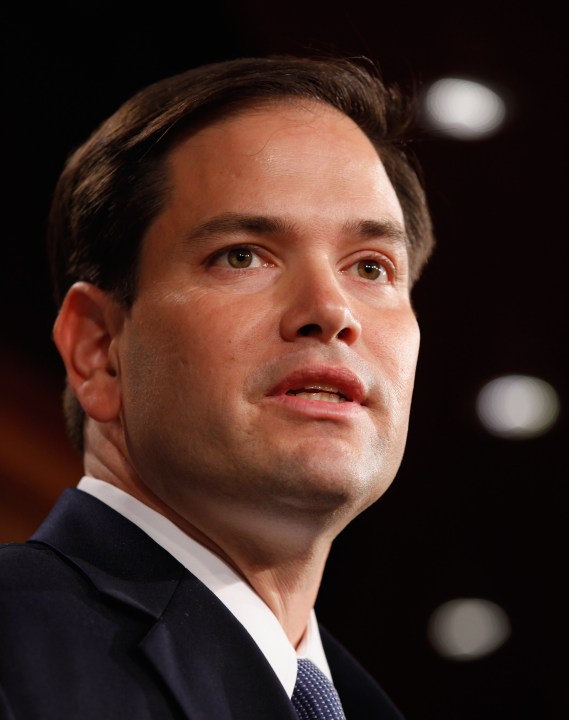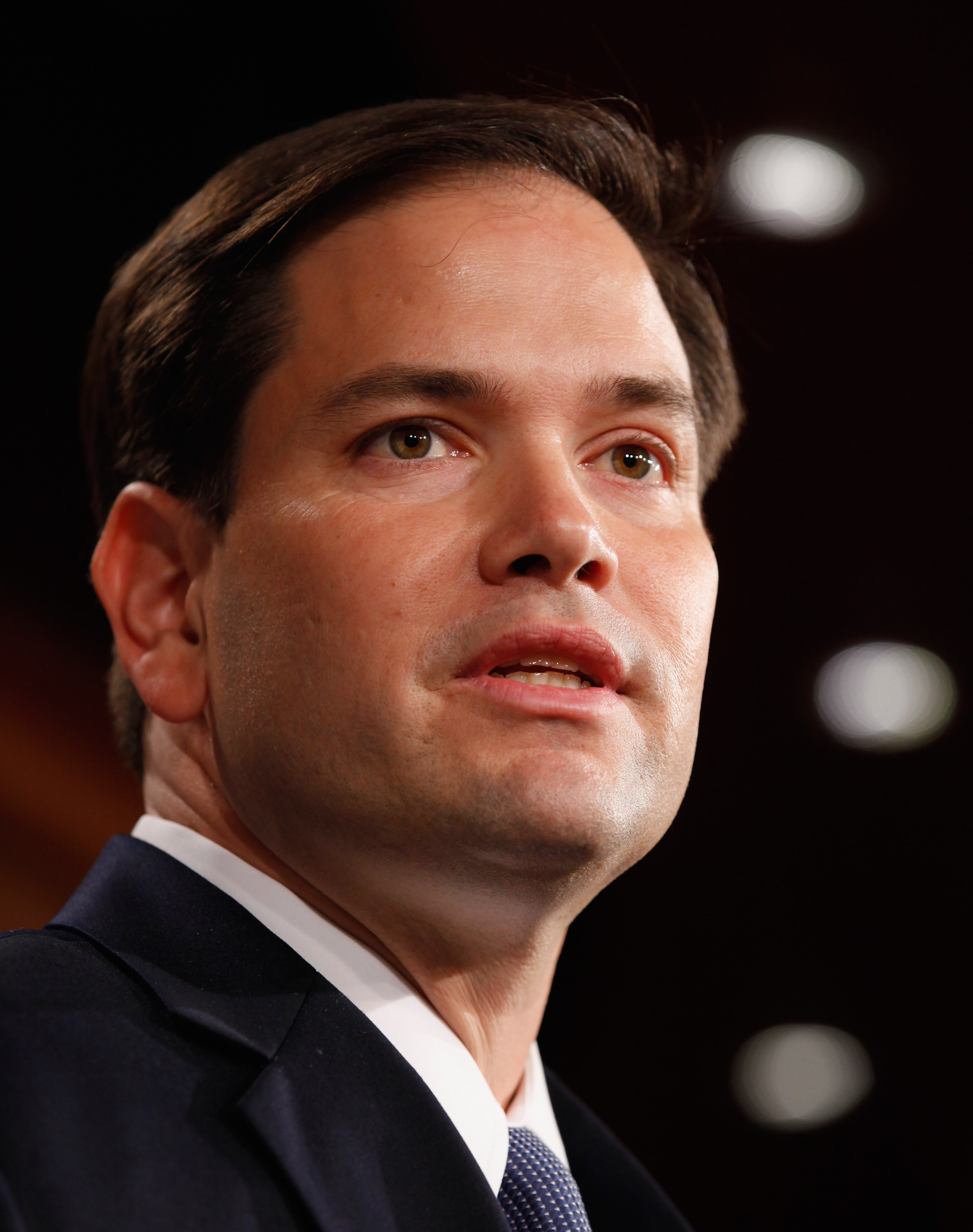 Just under a year from now, Republicans will meet in Tampa, Florida for their National
Convention, at which their candidate to take on President Obama will be nominated. So too will that candidate’s running mate: the man or woman hoping to oust Joe Biden and become the 48th Vice
President of the United States. The choice of VP candidate will be one of the biggest decisions facing whichever of the Presidential hopefuls emerges victorious in the primaries.
Just under a year from now, Republicans will meet in Tampa, Florida for their National
Convention, at which their candidate to take on President Obama will be nominated. So too will that candidate’s running mate: the man or woman hoping to oust Joe Biden and become the 48th Vice
President of the United States. The choice of VP candidate will be one of the biggest decisions facing whichever of the Presidential hopefuls emerges victorious in the primaries.
Right now, the clear favourite to be selected is Marco Rubio. The betting markets give him around a one-in-three chance of being chosen, making him at least four times as likely as anyone else to be the VP candidate. Mitt Romney has already stated that Rubio’s on his VP shortlist. And it’s not hard to see why whoever ends up as the Presidential nominee would want the junior Senator from Florida to join their ticket. Rubio is very popular both amongst the Republican establishment and the Tea Party movement. He won election to the senate last November by a sizeable margin in one of the most important swing states in the country (see Bush v Gore, 2000). And, as a Cuban-American, he might be able to impove the GOP’s standing with Hispanics.
Rubio’s said he’s not interested in running for President or VP next year, but has recently sounded a little less definitive. Whether he adds his name to the Republican ticket may largely depend on whether he thinks it’d win. You see, he may well have Presidential ambitions of his own – perhaps for 2016 if Obama wins re-election, or 2020 if he doesn’t. And while the Vice Presidency would set him up nicely to win the nomination in 2020 – as it did for George Bush Sr in 1988 and Al Gore in 2000 – the position of “losing VP candidate” is a less advantageous one from which to launch a Presidential campaign. Just ask Joe Lieberman (Democratic VP candidate in 2000, fifth in the 2004 New Hampshire primary) or John Edwards (Democratic VP candidate in 2004, a distant third in the 2008 primaries). And, as I’ve noted before, if Sarah Palin were to run for President, she would become the latest such example.
In fact, just one man has lost election to the Vice Presidency and gone on to become President. Franklin Delano Roosevelt was running mate to James M. Cox when he lost to Warren G. Harding in 1920. Roosevelt then left politics for eight years, before being elected Governor of New York in 1928 and then President in 1932. Only two other losing VP candidates have won their party’s nomination: Bob Dole and Walter Mondale. For Dole, the gap between losing as the VP candidate (in 1976) and becoming the Presidential candidate (in 1996) was 20 years, and he lost the 1980 and ’88 primaries along the way. Walter Mondale is a slightly different case in that he lost re-election to the Vice Presidency in 1980, having already served for four years.
So if Rubio wants to be President but doubts the Republican’s ability to take back the White House in 2012, it might be wise for him to decline a slot on the ticket. There are of course others the nominee could turn to for a running mate. But the same reasoning also applies to the other Republicans who are touted as possible 2012 VP candidates but whose real focus is a future Presidential bid: Paul Ryan, John Thune, and newly elected Governors Bobby Jindal, Chris Christie, Bob McDonnell and Nikki Haley. Governors Haley Barbour and Mitch Daniels both passed on bids for other reasons, and could be strong VP candidates with a lot of establishment support. But Barbour declined a run for President because he didn’t have enough “fire in the belly”, and Daniels’ wife didn’t want her family subjected to the intense media scrutiny that goes with a national campaign. Both of these would also serve as barriers to a VP run. Then there’s Mike Huckabee, who has a good deal of appeal to independents despite being firmly on the religious right. But he’s not a possibility if Mitt Romney is the nominee: the deep animosity between the two former Governors rules out a Romney-Huckabee ticket.
The most likely candidates without obvious 2016 ambitions are also the more moderate ones, who could help the Presidential nominee amongst moderates rather than shoring up the base: Rudy Giuliani, Jon Huntsman. Giuliani fluffed his best chance at the nomination in 2008 and doesn’t look likely to have another realistic shot at the Presidency. Jon Huntsman is discovering that he has virtually no appeal within the Republican base (he is polling at just 1 per cent among Republicans), and has no realchance of winning the nomination. Both of them may feel that their best hope is the Vice Presidency, and would serve to broaden the appeal of the Republican ticket. However, exactly the candidates who would most need this kind of support may well baulk at the idea of choosing a pro-choice running mate (Giuliani) or one who mocks creationists and climate change deniers (Huntsman).
In short, there are alternatives to Rubio for VP, but none quite have his seemingly perfect combination of star quality, broad appeal and a swing state address. And getting him to sign on as Vice Presidential candidate may well rely on the nominee’s ability to convince him that they can win.







Comments